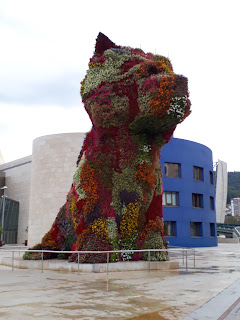LISBOA 2 - O TURISMO DE MASSAS (MASS TOURISM)
Mass Tourism = Human Pollution
Lisboa está cheia de turistas. Eu vivia cá há vinte anos e era quase igual nessa altura, mas há ainda mais agora, com o crescimento do Airbnb e o aumento do número de voos baratos.
Vi o grafite que está na foto em uma parede perto de Alfama, e na verdade as mesmas palavras estão escritas em outras paredes na cidade. É uma reação à invasão da cidade pelos estrangeiros, especialmente durante o verão. Até entendo um pouco o sentimento.
Quando se vê um homem maior, um lisboeta, a andar por Alfama, ou Portas do Sol, ou na Rua do Limoeiro, rodeado pelos turistas, sem poder passar, a sentir-se como um estrangeiro na sua própria cidade, até é compreensível queixar-se desses forasteiros. Estão em toda a parte no centro, perdidos, algums queimados pelo sol, falando alto em francês, inglês, espanhol, holandês, como se estivessem em casa.
Por outro lado, a economia portuguesa está a recuperar-se, em grande parte graças ao aumento do turismo. Os europeus já não vão à Turquia, ao Egipto ou a Marrocos em férias devido à ameaça do terrorismo, e por isso há mais gente em Portugal, que é visto como um lugar seguro e barato.
Por isso, a maioria dos portugueses toleram os estrangeiros, embora haja manifestações de impaciência como aquele grafite na parede. Os locais sabem que os ingleses, franceses, holandeses e alemães injetam milhões e milhões de euros na economia portuguesa cada ano, e sem a sua presença às vezes chata, a crise seria ainda pior.
Mesmo assim, se eu fosse lisboeta (e já fui, por três anos, há duas décadas), eu sem dúvida perderia a paciência com as hordas que vêm do norte cada verão para invadir a cidade. |
Lisbon is full of tourists. I lived here twenty years ago and it was almost the same then, though there are even more now, with the rise of Airbnb and cheaper flights.
I saw the graffiti in the photo above on a wall in Alfama, in the heart of the tourist district of Lisbon, and the same words can be seen in various locations in the city. It is obviously a reaction by some people to having their city taken over by foreigners, especially each summer. In a way I actually understand the sentiments.
When you see an elderly man, someone who has lived in Lisbon all his life, walking around Alfama, Portas do Sol or Rua do Limoeiro, surrounded by tourists, not able to get by, feeling like a foreigner in his own city, it is almost understandable to complain about these outsiders, swarming over these old places where people still actually try to live normal lives. The tourists are everywhere in the centre, like a plague, lost, sunburned, talking loudly in French, English, Spanish Dutch, as if they were at home.
On the other hand, the Portuguese economy is recovering slowly, thanks in large part to the increase in tourism. Europeans are not going to Egypt, Turkey or Morocco anymore because of fears about terrorism, so there are more people in Portugal, which is seen as a place that is largely safe and cheap.
For that reason, most Portuguese people put up with the tourists, though there are always expressions of impatience with them, like what is expressed in the graffiti above. The locals know that the English, French, Dutch and Germans inject millions and millions of euro into the Portuguese economy each year, and without their, at times, irritating presence, the crisis would be even worse.
Even so, if I was a Lisbon native ( and I was, for three years in the nineties), I too would be losing patience with the hordes that descend on the city each year from the north.
|



Comments
Post a Comment